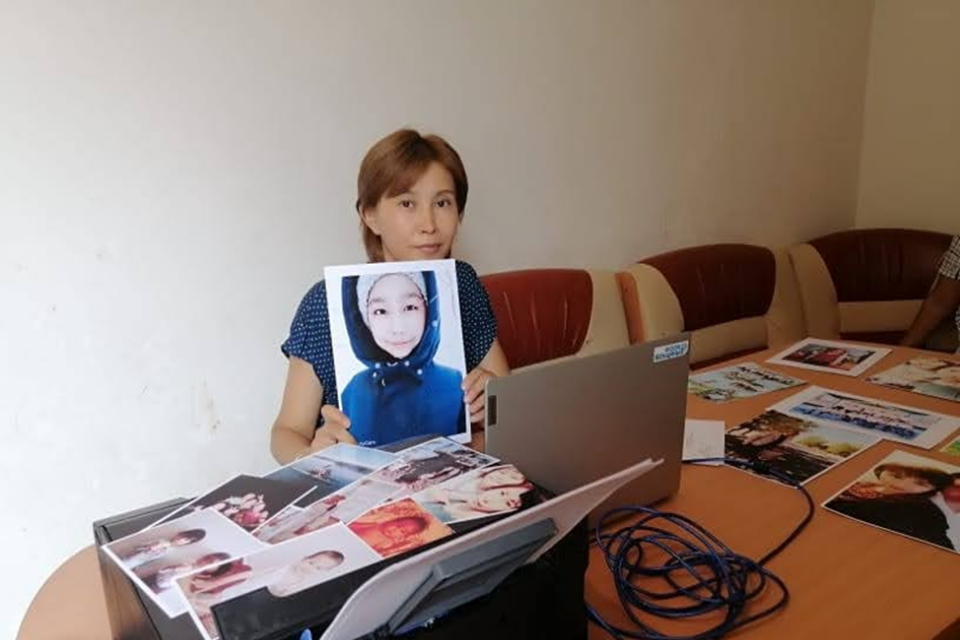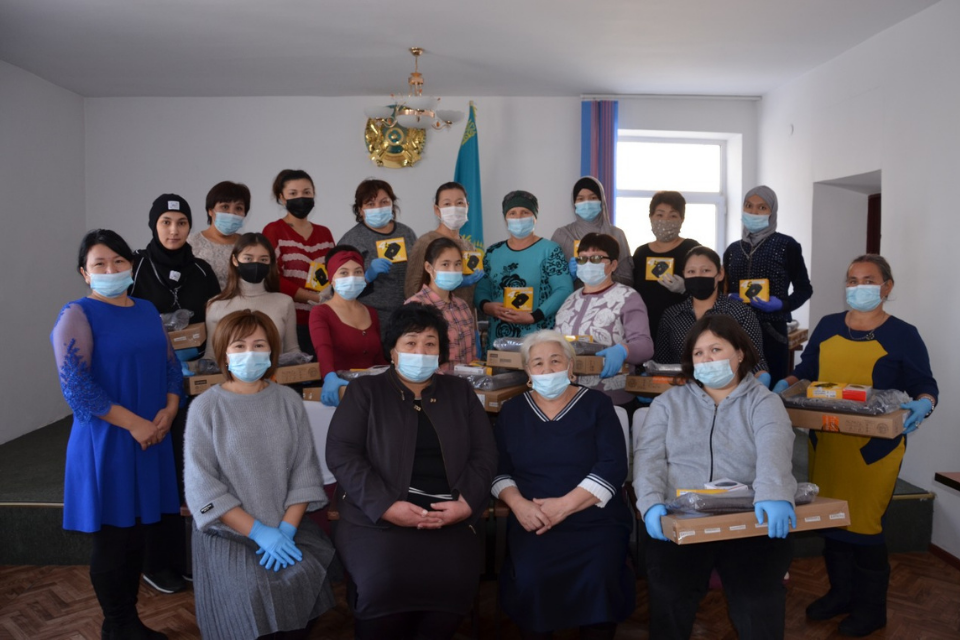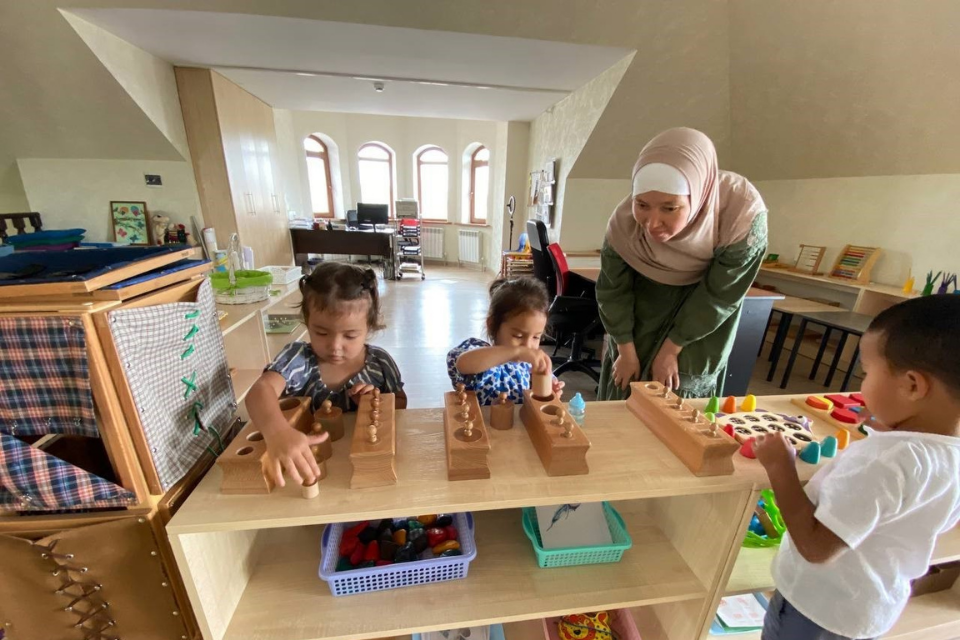Despite the pandemic, rural women in Kazakhstan launch their own businesses
Date:

"We must always move forward," says Meruert Aralbaeva, a 30-year-old mother and cashier living in Podgornoye village in the Akmola region, in central Kazakhstan. During the coronavirus pandemic, her husband lost his income for several months, and her family struggled. She was among many in Kazakhstan and worldwide who experienced this kind of hardship in 2020.
UN Women assists the Government of the Republic of Kazakhstan in supporting women and girls living in rural areas and promoting heir equal participation in all aspects of life. In response to the COVID-19 pandemic,in December 2020, UN Women provided 68 socially vulnerable rural women and girls living in the Almaty and Akmola regions with computers and prepaid internet plans for one year, along with training in digital and business literacy.
Globally, the pandemic has exacerbated existing inequalities and vulnerabilities, with women and girls being more prone to the negative impacts. According to the results of the ‘Rapid Gender Assessment for the Covid-19 situation in the Republic of Kazakhstan’, significant groups of the population, primarily those employed in the labour sphere, experienced hardship because they lost work and income. The survey, conducted by UN Women and the United Nations Population Fund in April 2020, shows that among wage earners (the largest employed group), one in five had lost their job; and the one in three who were still employed, saw their incomes fall.
During the pandemic, rural women faced significant income disruption. The Assessment found that 26 per cent of employed women lost their jobs. Interestingly, rural women began to spend more time than their urban counterparts on education, skill development and child raising (45 per cent versus 39 per cent) and childcare (39 per cent versus 35 per cent).
Lina Daletzhan, who lives in Nurly village in Almaty, are among women who received skills development support from UN Women. "I learned targeted advertising, and through the money I earned, we were able to buy the medications that I needed. It was a great source of support for our family.” In 2019, she was diagnosed with cancer and was unable to attend classes.
The laptop and internet package helped Daletzhan with her online studies, meanwhile, she decided to also sign up for Online Blitz Tournaments and Regional Online Olympiads and obtained her diplomas in Kazakh Literature and Geography. “Having learned how to work with e-Government, I also began to help fellow villagers," says Daletzhan, "I am sure that for me, this is only the beginning of a new path!"

UN Women also conducted two webinars (in Kazakh and Russian) for selected beneficiaries on ‘Digital Technologies and Online Resources to Enhance the Potential and Opportunities of Rural Women’.
"We were provided with useful materials for personal development, and various business ideas. All this became the impetus for my development and inspired me to organize my own business," says Meruert Aralbaeva.
Being an avid baker, she managed to use the knowledge she gained to develop her own business. "My hobby turned into a business without me having to leave my home to work."
Gulnisa Zhanys is another recipient of support from UN Women. She lives in Nurly village in Almaty with her four daughters. "After two months, I mastered the basics of printing photos and documents. I bought a color printer and began printing photos and documents for fellow villagers, and I was paid for these printing services," she says.
“UN Women advocates equal opportunities for everyone. When education becomes broadly based, people in rural areas will be better equipped to gain economic opportunities, and to create new opportunities for themselves,” said Maria Dotsenko, UN Women Representative in Kazakhstan.

Zhansaya Omirzakova also lives in Nurly village and is a trained primary school teacher. Despite her qualifications, she found it difficult to get a job.
"With the help of a laptop, I began to study the Montessori teaching methodology. Simultaneously, I began to send job applications to various preschools and to look for job opportunities on employment websites," she recalls. "Now I work in a kindergarten as a Montessori method specialist," she says.
By remaining courageous and willful to pursue their dreams, Omirzakova along with the other women turned their hardship into an opportunity.
These women and young entrepreneurs from rural areas are beneficiaries of UN Women’s project that aims to empower rural women, overcoming vulnerabilities exacerbated by COVID-19 in Kazakhstan. The project was implemented with financial support from the Ministry of Foreign Affairs of Kazakhstan. For more information please contact: Dinara Bekturova, UN Women Programme Assistant, dinara.bekturova@unwomen.org, +7 700 271 69 80
UN Women in Kazakhstan:
Website: https://eca.unwomen.org/en/where-we-are/kazakhstan
Instagram: https://www.instagram.com/unwomenkazakhstan